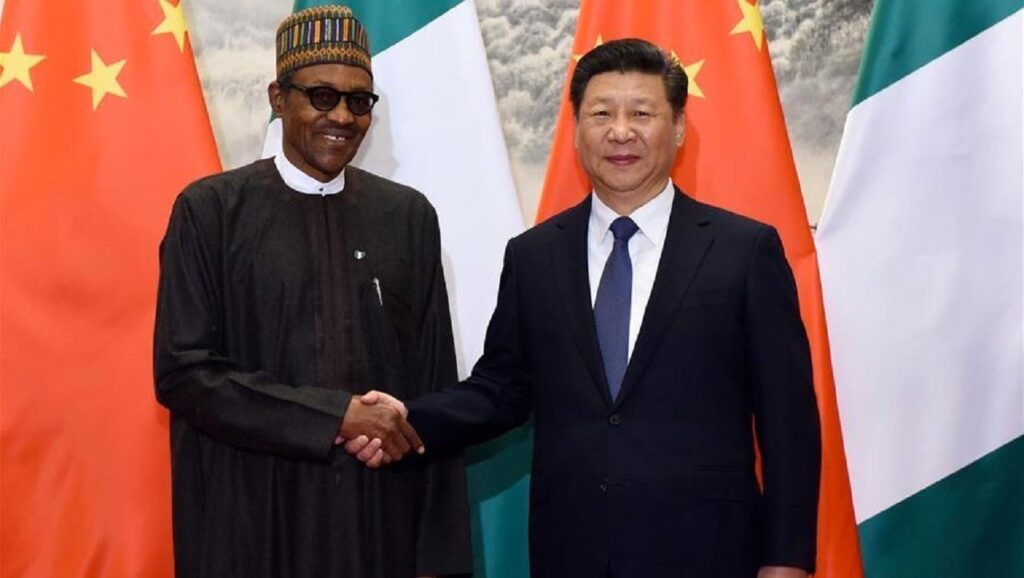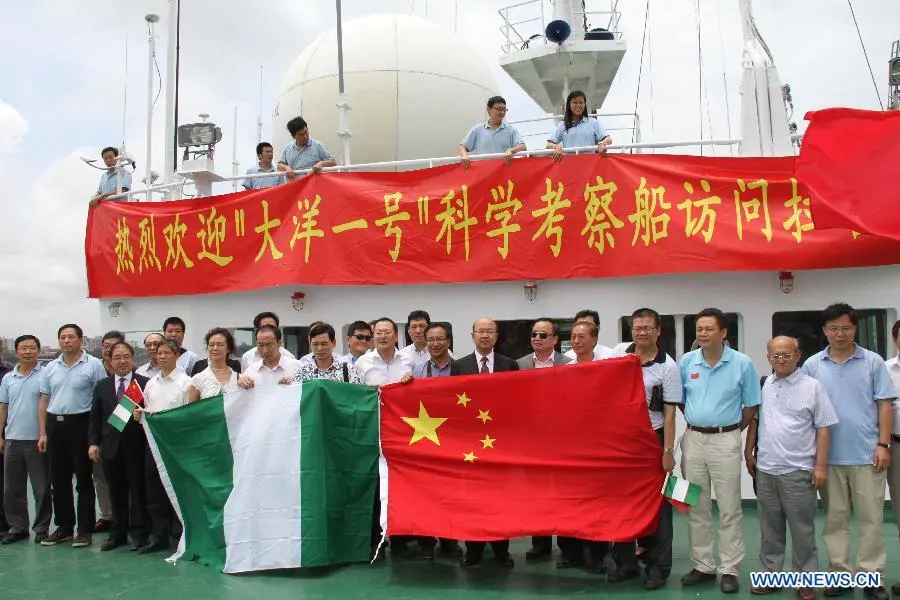In recent years, Nigeria’s relationship with China has evolved into a multifaceted partnership, spanning trade, investment, and geopolitics. This growing connection between the world’s most populous country and Africa’s most populous nation has been significant in shaping the economic and geopolitical landscape of not only Nigeria but the entire African continent. This article delves into the complexities of Nigeria’s relationship with China, exploring the dynamics of trade, investment, and geopolitical implications.
The economic ties between Nigeria and China have deepened over the past two decades, transforming China into Nigeria’s largest trading partner. The trade relationship is characterised by a substantial trade surplus in favour of China, with Nigeria predominantly exporting natural resources, such as oil, and importing a wide range of manufactured goods and infrastructure materials.
Nigeria, as a major oil producer, has become a significant source of crude oil for China. China’s increasing demand for energy resources to fuel its rapid economic growth led to a surge in oil imports from Nigeria. This dependence on Nigerian oil has cemented the energy component of the Sino-Nigerian trade relationship.
In contrast to oil, Nigeria imports a variety of goods from China. These include machinery, electronics, textiles, and consumer goods. Chinese products often dominate the Nigerian market due to their affordability and availability, which has implications for local industries and employment.
Both nations have established bilateral trade agreements to facilitate and expand their economic ties. These agreements aim to create a favourable trade environment, such as reducing tariffs on specific goods and promoting investment.

Nigeria’s increasing dependency on China, both as a trade partner and source of infrastructure development, presents a set of opportunities and challenges.
- Infrastructure Development
China’s investments have contributed to the development of critical infrastructure in Nigeria, including railways, roads, and power plants. These projects address Nigeria’s infrastructure deficit and stimulate economic growth.
- Access to Capital
Nigeria benefits from Chinese investments, which provide access to much-needed capital for economic development. Chinese loans and investment packages have been instrumental in addressing Nigeria’s infrastructure financing gaps.
- Diversification of the Economy
By cooperating with China, Nigeria can diversify its economy and reduce its heavy reliance on oil exports, which makes it vulnerable to global oil price fluctuations.

Challenges
- Debt Accumulation
Nigeria’s engagement with China has raised concerns about debt sustainability. Some critics argue that Nigeria is accumulating excessive debt through Chinese loans, which could create future financial vulnerabilities.
- Local Industry Challenges
The influx of affordable Chinese products has negatively affected local industries in Nigeria, leading to job losses and undermining the competitiveness of Nigerian products.
- Trade Imbalance
Nigeria’s trade balance with China heavily favors China, as the nation primarily exports raw materials while importing manufactured goods. This trade imbalance can lead to economic vulnerabilities.
China’s investments in Nigeria extend beyond trade. The Chinese government and Chinese companies have been involved in numerous infrastructure projects, contributing to Nigeria’s development.
Chinese companies have played a significant role in the construction of railways in Nigeria. For example, the China Civil Engineering Construction Corporation (CCECC) was involved in the development of the Abuja-Kaduna and Lagos-Ibadan railway lines.
China has also shown interest in Nigeria’s energy sector. Chinese firms have been involved in projects related to hydropower, solar power, and renewable energy sources. These projects aim to enhance Nigeria’s energy capacity.
Investments in ports and transportation infrastructure are another key focus. The development of deep-sea ports and road networks is essential for Nigeria’s trade and economic growth.
China’s involvement in Nigeria’s telecommunications sector has grown, contributing to the expansion of mobile network services and internet connectivity.
Nigeria’s deepening ties with China have not gone unnoticed in the geopolitical arena. Several implications arise from this strategic partnership:
Nigeria’s growing relationship with China can be seen as a counterbalance to Western influence in Africa. As China’s presence in the continent expands, it challenges the traditional dominance of Western powers.
Nigeria, as one of Africa’s largest and most influential nations, has a significant role to play in shaping China’s engagement with the continent. As it strengthens its ties with China, Nigeria can influence the terms and nature of China-Africa relations.
Nigeria’s engagement with China underscores the country’s strategy to diversify its international partnerships. Rather than relying solely on the West, Nigeria seeks to engage with emerging powers, expanding its options in the global arena.
China’s infrastructure investments in Nigeria are part of its broader strategy of infrastructure diplomacy in Africa. This allows China to strengthen its political and economic influence on the continent.
The Sino-Nigerian relationship extends to security cooperation. Nigeria has turned to China for security equipment and support in its efforts to combat terrorism and insurgencies, further cementing the bilateral ties.
The Sino-Nigerian relationship is likely to continue evolving, with various prospects and challenges ahead:
To ensure financial sustainability, Nigeria must carefully manage its debt accrued from Chinese loans. Transparency in loan agreements and prudent fiscal management are essential to avoid over-reliance on Chinese financing.
Nigeria should focus on diversifying its exports to China, moving beyond oil to include other products and services. A balanced trade relationship can help address the trade imbalance.
The Chinese investments in infrastructure are critical for Nigeria’s economic development. However, it is vital to ensure that these projects benefit local communities and contribute to long-term economic growth.
Nigeria must navigate its relationship with China while considering its global geopolitical interests. Balancing relationships with both traditional Western partners and emerging powers like China is a complex but essential task.
Nigeria’s relationship with China is multifaceted, encompassing trade, investment, and geopolitical considerations. While the economic partnership has brought opportunities for infrastructure development and economic diversification, it has also raised concerns about debt sustainability and trade imbalances. As Nigeria continues to engage with China, it must carefully manage its economic and geopolitical interests to ensure the relationship remains mutually beneficial and supportive of Nigeria’s long-term development. The evolving dynamics of the Sino-Nigerian relationship will continue to shape the future of both nations and have implications for the broader African continent.
Sources




